Related Research Articles

Li Bai, also pronounced as Li Bo, courtesy name Taibai, was a Chinese poet, acclaimed from his own time to the present as one of the greatest and most important poets of the Tang dynasty and in Chinese history as a whole. He and his friend Du Fu (712–770) were two of the most prominent figures in the flourishing of Chinese poetry under the Tang dynasty, which is often called the "Golden Age of Chinese Poetry". The expression "Three Wonders" denotes Li Bai's poetry, Pei Min's swordplay, and Zhang Xu's calligraphy.

Chinese poetry is poetry written, spoken, or chanted in the Chinese language, and a part of the Chinese literature. While this last term comprises Classical Chinese, Standard Chinese, Mandarin Chinese, Yue Chinese, and other historical and vernacular forms of the language, its poetry generally falls into one of two primary types, Classical Chinese poetry and Modern Chinese poetry.

Classical Chinese poetry is traditional Chinese poetry written in Classical Chinese and typified by certain traditional forms, or modes; traditional genres; and connections with particular historical periods, such as the poetry of the Tang dynasty. The existence of classical Chinese poetry is documented at least as early as the publication of the Classic of Poetry (Shijing). Various combinations of forms and genres have developed over the ages. Many or most of these poetic forms were developed by the end of the Tang dynasty, in 907 CE.
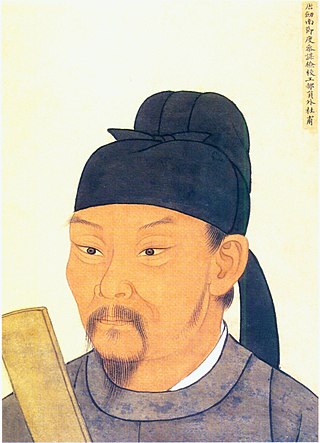
Du Fu was a Chinese poet and politician during the Tang dynasty. Along with his elder contemporary and friend Li Bai, he is frequently called the greatest of the Chinese poets. His greatest ambition was to serve his country as a successful civil servant, but he proved unable to make the necessary accommodations. His life, like the whole country, was devastated by the An Lushan Rebellion of 755, and his last 15 years were a time of almost constant unrest.
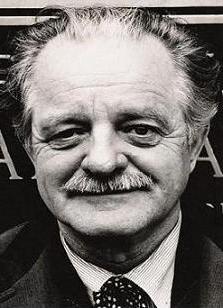
Kenneth Charles Marion Rexroth was an American poet, translator, and critical essayist. He is regarded as a central figure in the San Francisco Renaissance, and paved the groundwork for the movement. Although he did not consider himself to be a Beat poet, and disliked the association, he was dubbed the "Father of the Beats" by Time magazine. Largely self-educated, Rexroth learned several languages and translated poems from Chinese, French, Spanish, and Japanese.

Li Qingzhao, also known as Yian Jushi was a Chinese poet and essayist during the Song dynasty. She is considered one of the greatest poets in Chinese history.

Mei Yaochen (1002–1060) was a Chinese poet of the Song dynasty. He was one of the pioneers of the "new subjective" style of poetry which characterized Song poetry.

Ono no Komachi was a Japanese waka poet, one of the Rokkasen—the six best waka poets of the early Heian period. She was renowned for her unusual beauty, and Komachi is today a synonym for feminine beauty in Japan. She also counts among the Thirty-six Poetry Immortals.

Lu You was a Chinese historian and poet of the Southern Song Dynasty (南宋).
One Hundred Poems From the Chinese is a collection of translations of Chinese poetry by Kenneth Rexroth, first published in 1956. The book is in two parts: the first contains 35 poems by Du Fu, while the second consists of works by assorted Song dynasty poets. The book actually contains over one-hundred poems.
Li Yannian was a Chinese musician during the Han dynasty. He became a court musician during Emperor Wu's reign, but was eventually executed for treason.
The Three Hundred Tang Poems is an anthology of poems from the Chinese Tang dynasty (618–907). It was first compiled around 1763 by Sun Zhu (1722–1778), who was a Qing Dynasty scholar and was also known as Hengtang Tuishi. Various later editions also exist. All editions contain slightly more than 300 total poems. The number 300 was a classic number for a poetry collection due to the influence of the Classic of Poetry, which was generally known as The Three Hundred Poems.
Eliot Weinberger is a contemporary American writer, essayist, editor, and translator. He is primarily known for his literary writings (essays) and political articles, the former characterized by their wide-ranging subjects and experimental style, verging on a kind of documentary prose poetry, and the latter highly critical of American politics and foreign policy. His work regularly appears in translation and has been published in more than thirty languages.
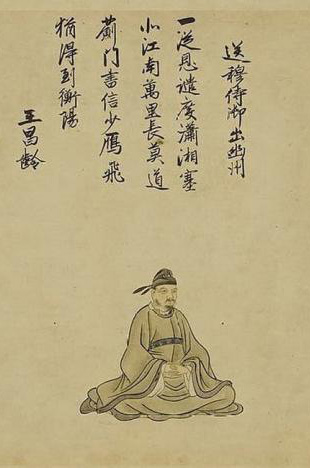
Wang Changling was a major Tang dynasty poet. His courtesy name was Shaobo (少伯). He was originally from Taiyuan in present-day Shanxi province, according to the editors of the Three Hundred Tang Poems, although other sources claim that he was actually from Jiangning near modern-day Nanjing. After passing the prestigious jinshi examination, he became a secretarial official and later held other imperial positions, including that of an official posting to Sishui (汜水), in what is currently Xingyang, in Henan province. Near the end of his life he was appointed as a minister of Jiangning county. He died in the An Lushan Rebellion; between the 10th month of the 14th year of the Tianbao era and the second year of the Zhide era, he was executed by the Tang official Lü Qiuxiao (闾丘晓). When Lü later was sentenced to death by another official Zhang Hao (张镐), he pleaded for mercy, citing the fact that he had kin to take care of. Zhang's retort was, "Then, who's left to take care of Wang Changling's kin?". Lü went silent after that.

Consort Xu (徐惠妃) was a concubine of Later Shu's emperor Meng Chang during imperial China's Five Dynasties and Ten Kingdoms period. More commonly known as Madame Huarui (花蕊夫人), she was also a notable poet.
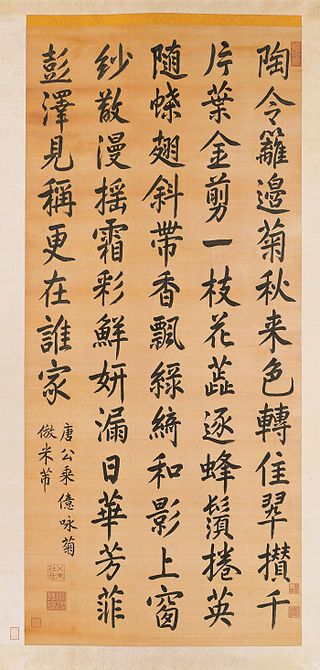
Complete Tang Poems is the largest collection of Tang poetry, containing some 49,000 lyric poems by more than twenty-two hundred poets. In 1705, it was commissioned at the direction of the Qing dynasty Kangxi Emperor and published under his name. The Complete Tang Poems is the major reservoir of surviving Tang dynasty poems, from which the pre-eminent shorter anthology, Three Hundred Tang Poems, is largely drawn.
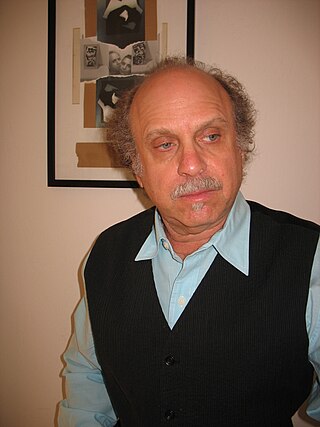
Doren Robbins is a contemporary American poet, prose poet, fiction writer, essayist, mixed media artist, and educator. As a cultural activist, he has organized and developed projects for Amnesty International, the Salvadoran Medical Relief Fund, the Romero Relief Fund, and poetsagainstthewar.org. Robbins has lived most of his life in California and Oregon.
Song poetry refers to Classical Chinese poetry of or typical of the Song dynasty of China, established by the Zhao family in China in 960 and lasted until 1279.
Li Pin was a late Tang Dynasty poet. One of Li Pin's poems was collected in the popular anthology Three Hundred Tang Poems.
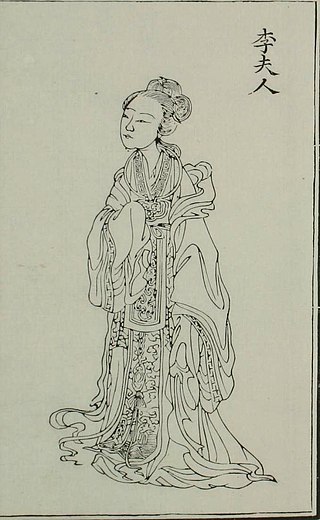
Lady Li, also rendered as Li Fu-jēn, was a Han dynasty concubine of Emperor Wu. Civil unrest broke out between her family and Wei Zifu's family. Moreover, her siblings defected to the Xiongnu and became traitors to China. As a result, Emperor Wu ordered her relatives to be tried and executed, leading to the downfall of her and her family.
References
- Rexroth, Kenneth, 1970. Love and the Turning Year: One Hundred More Poems from the Chinese. New York: New Directions.